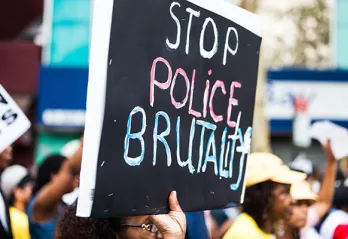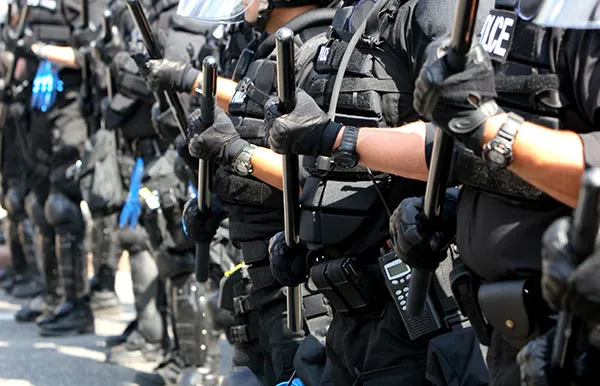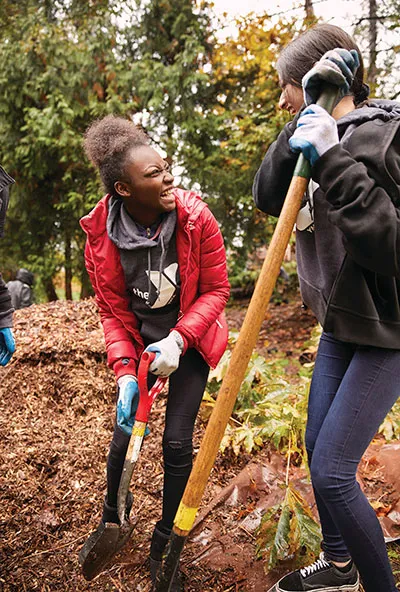Rethinking Law Enforcement

The cry to defund the police department has been a surprising rally cry. On the face of it, a town without police is not a good idea. There are simply evil people out there who will do horrible things, and I do not think any of us want to live in a community without laws being enforced.
For those of you who do not know this, I was a police officer in a large Midwestern, very diverse city. I have an idea of what I am talking about.
The police have an absolute place in our society, and the vast majority of them are good people who will charge into a dangerous situation to try to save your life. The bad ones stand out because the result of a bad officer is an action where someone dies unnecessarily.
If we want change, we must make real—and I mean real—change. Not a bunch of seminars or signage or one-time trainings or adding in a 4-hour course at the academy. Change needs to be systemic. Systemic change combats systemic racism.
If you are a police officer, you must be ready to fight. You must be ready for violence. This is simply true because of the dangers involved in the work. It is evidenced by the number of officers who are injured by violence every year.
I have staff members who freak out if they get into a disagreement with each other and then are afraid of the other person. Physically afraid because of a minor co-worker dispute. We have staff who do not wish to walk to their car alone at night. All of that is reasonable, but your neighborhood policeman walks into that dark parking lot EVERY night and must have disagreements with people EVERY day. This is a long-winded way of saying that a police officer’s fight mode is always on alert. They are a hammer, and they are always ready to pound a nail.
It’s not right. It’s just a bit of reality.
So how can that change?
I think that a re-analysis of what is important to us is in order. I remember one of my trainers at the Police Academy said that the proper term for a policeman’s job was a peace officer. I liked it because I was idealistic and that appealed to me. It also sounded kind of Wild West.
However, my FTO (field training officer) taught me that when someone sketchy comes up to the car, I should subtly take my gun out and hide it under my other arm where they cannot see it, that way it is ready for action. How do you have a conversation with someone and engage with them in a genuine, human-to-human manner when you secretly have your weapon at the ready?
This is a dichotomy that most people cannot even consider.
Another issue is the amount of police presence/force in the area. If an officer is surrounded by other officers, then the use of force can escalate very quickly. If everything is a nail and you have a whole bunch of hammers, how do you stop the inappropriate use of force that we see in so many of these videos?
Change comes by not being the hammer. Change comes by having other tools in the toolbox. Instead of law enforcement, what about community peace enforcement?
When I was a police officer, we had department social workers that worked M-F, 9-5, holidays off. Basically, the exact times that were the quietest. Right idea, dumb execution.
What if instead of 10 officers on a shift, there were six and four social workers? Or what if we expanded programs like Longmont’s CORE program, which sends a behavioral health clinician with an officer on appropriate calls?
What if we funded more school counselors to work with the police to support kids? The vast majority of calls I went on could have and should have been handled by a social worker, not an armed officer.
The instant argument is that we never know when a situation is going to turn violent. That’s a good point, but that is not the norm. Perhaps we cross-train a whole group of officers to be social workers. Crime is usually caused by various ills in society: drugs, alcoholism, youth crime and gangs because of a bad home situation, poverty, lack of education, lack of role models, lack of work, lack of something to do, and so on. Crime is a result of social ills; it might be a trite and sophomoric statement, but social ills are solvable. We simply need to resolve to solve them, and simply using law enforcement has not worked.
Other places that should be funded differently are the Ys and the Boys & Girls Clubs. We fight for every dollar we get, and our youth programs are not well funded. Which results in constant staff turnover, which means that many times we cannot make a long-lasting difference in the community.
The Y can fix some of this stuff: How about funding us to do it? Fund us to open 1,000 Ys in the poorest parts of our cities and fund them appropriately? The cost to build 1,000 Ys is $30 billion, and the annual budget to run them 100% is about $5 billion. Guarantee funding with COLA escalators for the next 20 years. Doable!
Do we have the will to do it? There is no doubt that this would move the needle, and because the Ys are federated, it would be locally led and controlled, so bureaucracy is kept to a minimum. We train our staff to figure out how to say YES to solving issues, not NO.
Let me give you an example of how being properly funded could make a big difference. This week, I watched a mom come to the Y preschool to pick up her son because he was being so disruptive that we could not safely handle him while providing care and enrichment to the other kids. He was just having an “off” day, which happens for him not infrequently.
If we had a one-on-one staff member, we could have taken care of him, but we do not have the money for “floating” staff. He comes from a single-parent home, and his mom works at a fast food restaurant. I saw her pick him up, and it brought me to tears because of the love I saw her give him and his response. This is a house filled with love and caring, and it is simply under-resourced. Those lack of resources will mean that that little boy will have a hard time making it through our education system successfully. He has the absolute statistical chance of dropping out and having significant law enforcement contact.
This does not have to happen, but it will unless we rethink our priorities. He needs to stay with us during the day so he can get the school-readiness he needs, have healthy meals, meet other caring adults who will love him and hug him. Instead, he got sent home.
That is garbage! We are better than this.
Is this an example of systemic racism?
It is definitely systemic failure that mainly affects people of color. We HIDE behind policy and procedure in our institutions. We are afraid to make decisions that are outside of the box but that are correct for an individual’s situation. We have become the land of “no.”
It was policy and procedure 60 years ago to segregate schools; bad policy, bad procedure that did not stand the test of time. It is a failure to care more about law enforcement and punishment than it is to care about education, social services and helping people overcome the systemic injustices that they are born into.
The grumpy among us will say that we have school counselors, Ys, Boys & Girls Clubs, social services and the like. However, even the most cynical cannot say these are well funded, not always staffed by our best and brightest (except for my Y staff, who are definitely the best and brightest) and able to make a true difference. They are sometimes a bucket brigade trying to put out the Great Chicago Fire.
We know that people are profiled, we know that the justice system is too overwhelmed to look at cases individually, we know that our prisons make things worse.
These are facts. They are not debatable. This has been shown to be true.
So, now I ask you what you are going to do about it.
When teaching a leadership class or talking to new managers, I often reference a scene from the movie Zero Dark Thirty. In this scene, the supervisor is talking to his team, which is searching for Osama Bin Laden. He tells them that they are failing (Completely not safe for work or young kids because of the use of the F word, but completely apropos for where we are right now).
Who else is working on this if not YOU, who else is going to change things if not YOU?
Are you going to nod your head and say, “Sure am glad I am not BIPOC or LGBTQ+”? Or are you going to rethink how our institutions interface with all segments of society? There is racism, there is injustice, there is crime and poverty as well.
We just spent trillions of dollars bailing out our economy. Should we spend some money on uplifting our country, which will also ultimately uplift our economy? How about you begin to rethink how we fund our law enforcement system and provide the tools and funding for our social services?
It starts with those of us who are most likely reading these words. We have the power to foment change. We have the power to demand services in our communities, we have the power to give enough resources to our schools and police to treat each person as an individual and to find individual solutions and to fund a variety of programs so we can serve those individuals.
Once again, I ask you, what are you going to do?
Chris Coker, PhD.
CEO/President
YMCA of Northern Colorado



